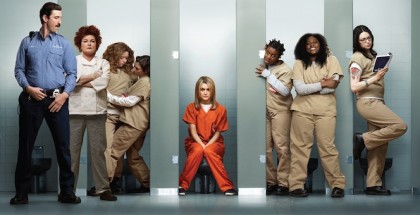The Game of Thrones generation? Half of young people think online content should be free
David Farnor | On 27, Jun 2014
Almost half of young people in the UK think that online content should be free, a new poll from YouGov reveals, as file sharing becomes a social norm for those raised in the Game of Thrones generation.
The survey found 49 of children aged between 8 and 15 years old aree or strongly agreed that you should be able to download or access content you want for free from the internet. 6 per cent said that using file-sharing sites is easym while 7 per cent said it was “normal”.
The same proportion of 16-24 year olds agreed that online content should be available for free, with ad-supported streaming services such as Spotify and YouTube proving particular popular among users.
The stats arrive hot on the heels of the climax of Game of Thrones Season 4, which once again broke records for the number of illegal downloads around the world. The programme’s lack of availability outside of the USA unless you committed to a 12-month contract with Sky, followed by a year’s gap until its DVD release, drove many people to piracy, as there was no other way to watch the show. These kind of situations have helped to turn piracy into something of a social norm among some sections of society, an attitude that is being passed onto younger audiences.
Indeed, while their are younger viewers concerned about ethics, just 16 per cent of those under 15 felt it was wrong to access content without the creator or artist’s permission, while 7 per cent said file sharing was a form of stealing. Some may believe file sharing is wrong, but they see the activity as the fault of other people, not the viewers: 6 in 10 16-24 year olds agreed that companies and websites allowing illegal content should be punished, rather than those who have accessed the content.
Cost is the major factor in the decision to use file sharing sites, with 51 per cent of adults and 44 per cent of children saying they file-share to save money, while 25 per cent of 16-24 year olds say it is the only way they can afford to access content. Indeed, 27 per cent said CDs and DVDs are “too expensive”.
What has also helped boost piracy is its simplicity: 41 per cent of adults say that file sharing is “quick, convenient and easy”; an attitude that, again, has passed on to younger generations, with 38 per cent of children agreeing.
“Children aged 8-15 are the key adopters of digital technology, and are likely to be more familiar with accessing content without paying,” says James McCoy, YouGov Research Director.
“Children in this generation have grown up with digital material and are used to having access to what they want, when they want it and for some of the time not paying for it. They do not just listen and watch digital content; they consume it by downloading, file sharing, streaming, making playlists and going on recommendations from friends or contacts via social media.”
“While they appreciate the issues surrounding piracy and illegal downloads, if they can get away with it, then they will,” he continues. “Why change the habit of a lifetime?”
That is the resounding question for the entertainment industry, which must somehow convince people to change their habit away from something free, quick, convenient and familiar. With younger viewers already on the way to following in this generation’s footsteps, the industry must engage with this group.
“The challenge for the industry is to… change their mind-set about accessing content and to educate them in a relevant and non-condescending way about the issues surrounding this matter,” adds McCoy.
What could tempt kids to pay for content? 1 in 5 said they would pay if it gave them something new or exclusive, while 13 per cent said they would pay if they wanted to support a specific up-and-coming artist. HBO have already taken steps this month to release Game of Thrones for download immediately after the final episode aired. With no exclusive extras offered, though, and the show’s association with Sky – as far from an up-and-coming artist a corporation can be – it may be some time until younger viewers growing up in the Game of Thrones generation stop sharing and start spending.

















